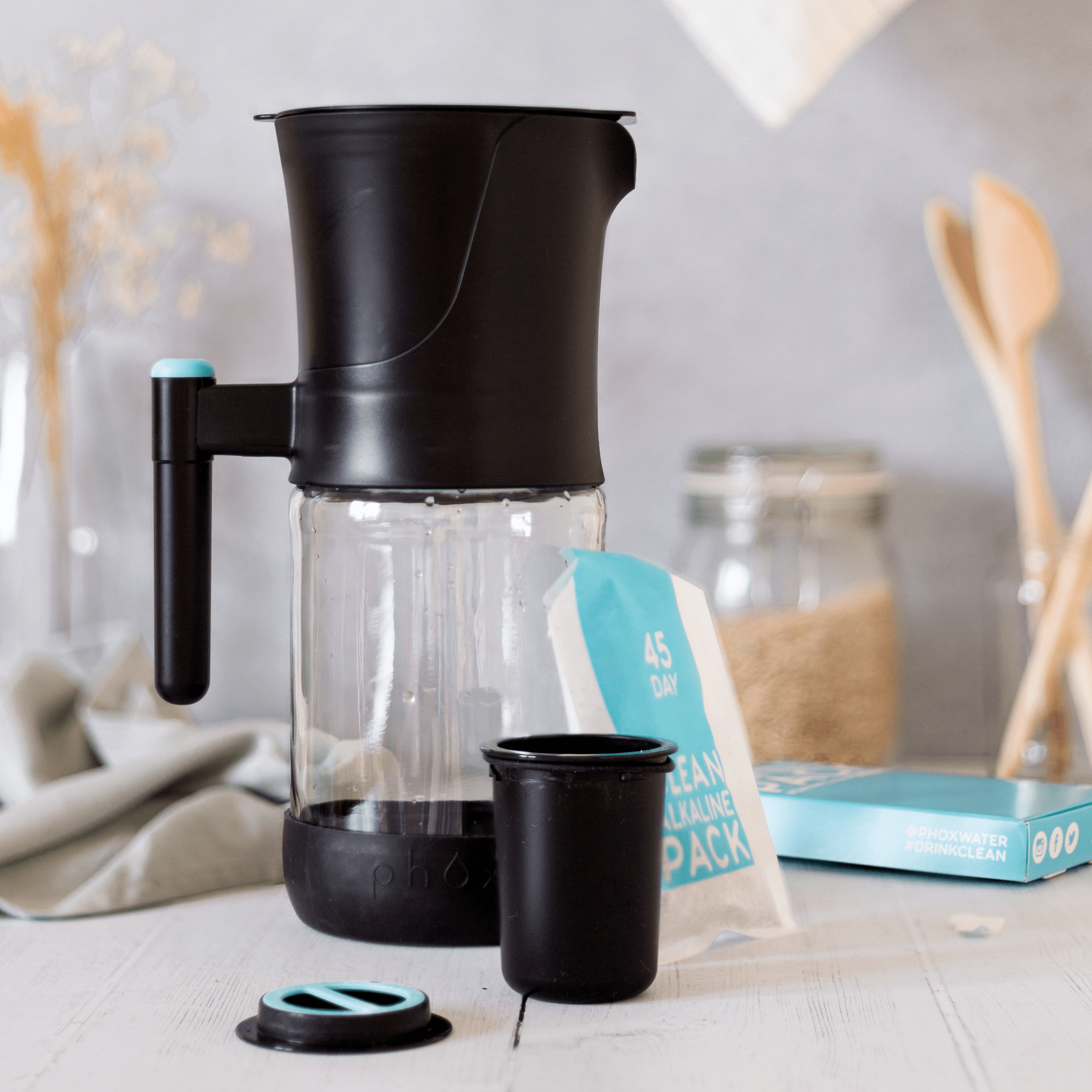10 Easy Steps to Cutting Your Plastic Waste this Summer
12 million tonnes of plastic end up in the ocean every year and only 9% of all plastic ever produced has been recycled (Friendsoftheearth.uk).
Blue Planet II recently highlighted the terrible effect this is having on our oceans and the marine life which inhabits them. New statistics are also emerging all the time that underline the severity of the problem that plastic poses to the earth and the issue has been propelled into the mainstream media spotlight giving it much needed awareness.
Are you aware just how much plastic you use on a daily basis?
Plastic gets everywhere. Despite the damage current levels are doing to the environment, oceans and even food chains, global investment in plastic production is set to increase by $180bn in the next 10 years. This is why it's so important that we, as consumers, all do our best to reduce our own plastic use to decrease the demand for production.
We've reached out to some of the most awesome plastic-free campaigners across the globe to help us put together 10 easy steps to reduce your plastic use in Summer 2018.
Here's the list of 10 steps you can take to you can win your own fight against plastic and do your bit to preserve the planet this summer:
1. Ditch Plastic Straws

Summer is prime straw season. Smoothies, milkshakes, cocktails - consumption of all of these peaks in the sunshine. The only drawback about these tasty drinks is that they all come with a straw.
Plastic straws are made from polypropylene and polystyrene which means that, unless they are recycled, they take hundreds of years to decompose.
Fortunately, many organisations have already took the step of banning plastic straws or placing them behind the counter.
The use of metal straws is also on the rise which is encouraging and innovative products like FinalStraw are sure to see plastic straw use plummet!
2. Re-Think Cotton Buds

You might use them everyday when come out of the shower to clean your ears, but do you just throw them straight in the bin? Or even worse flush them down the toilet?! The seemingly innocuous cotton bud, is causing long term and sometimes fatal damage to marine life after it's been flushed away.
Plastic cotton buds are the number one item of plastic, sewage-related debris found on our beaches and rivers, according to the 2016 Marine Conservation Society's Great British Beach Clean.
Such is the extent of the problem that Scotland has recently announced plans to become the first country in the UK to ban plastic cotton bud production. Some brands like Johnson & Johnson have already stopped producing buds with plastic handles.
Opt for paper alternatives.
3. Get a Reusable Coffee Cup

Paper cups? Yes, those takeaway cups you ask for in your favourite coffee shop are only paper on the outer layer. They're plastic on the inside. You might be familiar with this given it's recent exposure on the news due to Government discussions about introducing a 25p levy on their use.
In the UK, we throw away 2.5bn coffee cups every year - enough to circle the world 5 times! Almost none are recycled and 500,000 end up as litter on our streets every day.
Purchase a reusable coffee cup and carry it with you. Pret A Manger will give you a 50p discount for bringing your own cup!
4. Check Your Teabags

I bet when you clicked this article you didn't expect to find out that even your cuppa doesn't escape the plastic epidemic. When we say plastic gets everywhere, we mean everywhere. Hidden in the most unexpected places, like teabags.
Some of the largest tea brands in the UK use polypropylene, a sealing plastic, to fasten their bags together. Which means many of the 60 billion cups of tea enjoyed every year in the UK incur needless plastic use.
This is also has an area that has been exposed in the media recently, which led PG Tips to announce they will stop using sealing plastic and replace it with a biodegradable alternative.
For alternatives, source sustainable brands - not Tetley & Twinings!
5. Change your Toothbrush

It is recommended that you change your toothbrush every 3-4 months.
While the bristles may fray, the plastic will be perfectly fine and yet it will end up in waste bin anyway. Think about how many toothbrushes are thrown away every year.
In the US, it is estimated somewhere between 850 million-1 billion toothbrushes are used per year.
Alternatives: Bamboo or charcoal toothbrushes should do the trick!
6. Ditch Single-Use Bottles - for good!

This is the big one. The scourge of the current plastic crisis, ruining oceans, beaches and landscapes across the globe - single use plastic bottles have got to go! 76% of the UK Population drank bottled water in 2017 (Mintel), that highlights the scale of plastic bottle use in the UK - and that's only for water!
Amanda Keetley, Director of Less Plastic considers plastic bottles as the biggest culprit in plastic waste today:
"If I was to prioritise exactly which item has the biggest impact, it would be ditching plastic bottles from your life. Bottles, fragments of bottles and lids are the items we find most frequently on beaches near our home, and in this country it is one of the most pointless plastics because tap water or filtered water is so readily available."
Take the convenience out of plastic bottled water today by getting yourself a durable, reusable water bottle that will make it easy for you to stay hydrated on the go without the need for single-use bottles.
7. Chew Over Your Gum

This one might come as a little surprise to some of you, but yes, even chewing gum has plastic in it.
Almost all brands of chewing gum are made with polyvinyl acetate (a type of plastic). If the label lists “gum base” as an ingredient, it may contain “petroleum, lanolin, glycerin, polyethylene, polyvinyl acetate, petroleum wax, stearic acid, or latex,” according to the Vegetarian Resource Group.
Alternatives: Natural chewing gum brands like Xylichew, Spry Gym and Green Tree Gum.
8. Avoid Plastic Bottled Hand Soap

It seems like dispensable hand soap is the fashionable way to wash your hands these days. For many intents and purposes it is, cool scents and no need for the share the germs that gather on bars of soap right? Well, not really.
While it may be necessary in public toilets, it's not exactly a necessity in our bathrooms at home. This is the perfect example of a product that is causing us to needlessly consume disposable plastic.
In 2017, more than 269 million Americans used liquid hand soap. Think about all those plastic bottles.
For the germaphobes among you, a bar of soap can always be rinsed with warm water whereas the push button on a liquid soap bottle, not so easy.
Alternatives: Eco-friendly bar soaps.
9. Buy Loose Fruit & Veg

Summer is also the season for lots of fresh fruit, but if we're not careful we can easily accumulate needless plastic waste every time we top up the fruit bowl.
This is a very simple step but one that can often be easily overlooked. How often do you buy fruit and veg that is wrapped in clear plastic bags?
Nutritionist Nichola Ludlam-Raine ranks this in her list of 5 Ways to Reduce Your Plastic Use:
Bananas are a classic example; buy them loose and you immediately cut down on the plastic that you take home with you.
10. Carry a Reusable Bag

Since the 5p charge for single use plastic bags came into place across the UK, usage has dropped by 85% in some places. Some places have even stopped offering single use bags as an option too.
However, it can still be easy to find yourself in a shop buying more items than you can handle. That's why it's a great idea to fold up a reusable bag and carry it with you every day, that way you'll never have to buy a plastic bag... or worry about dropping half of your things on the way home!


